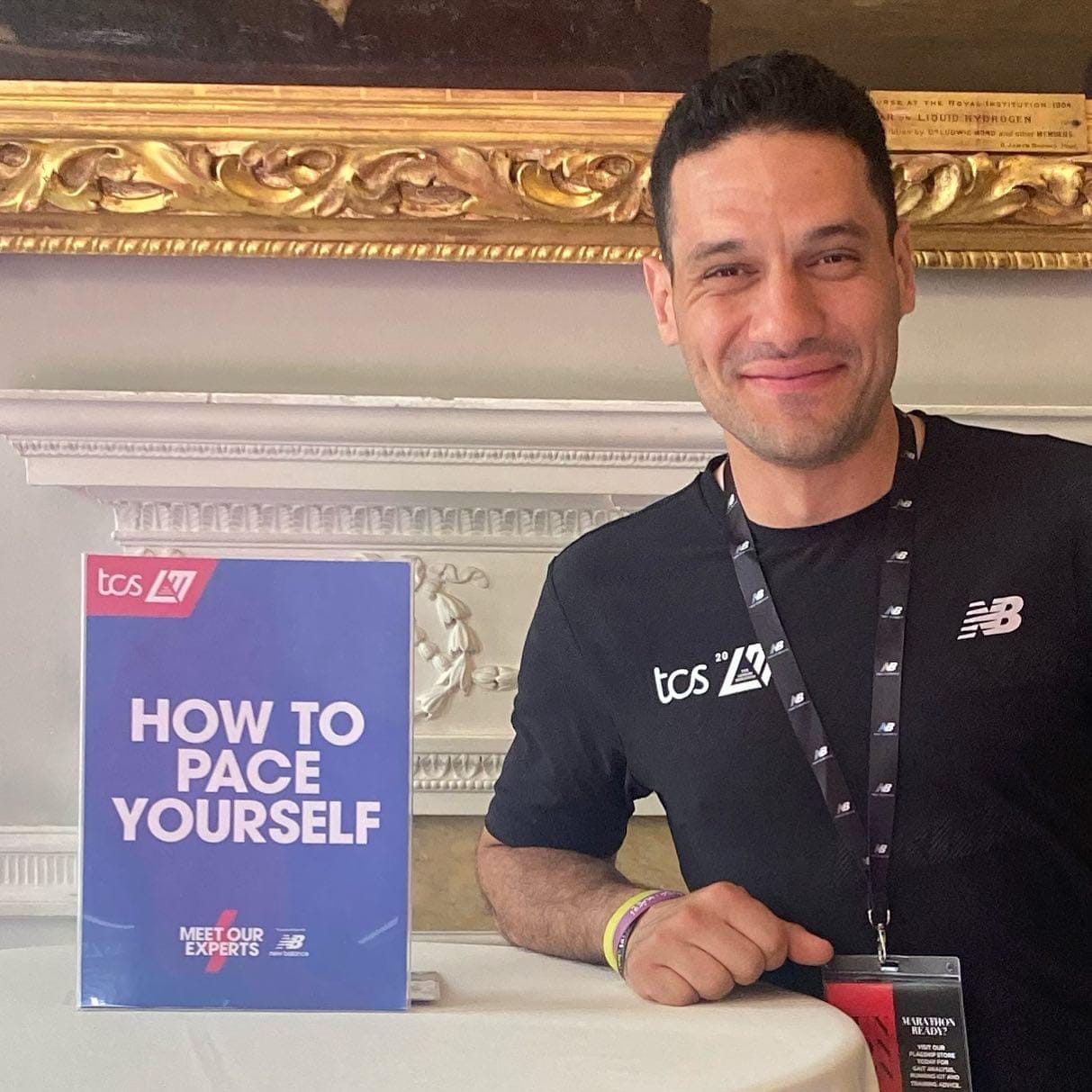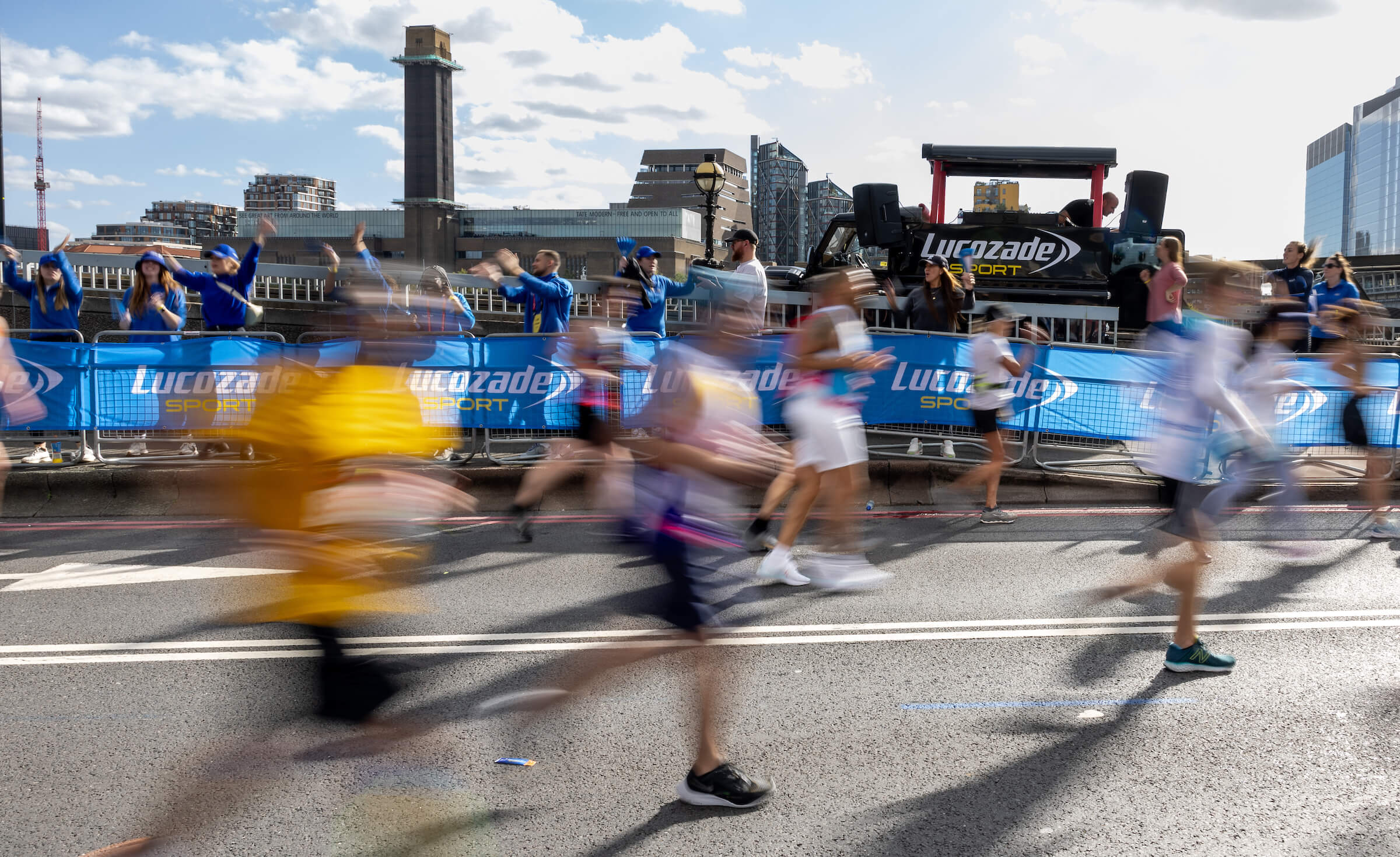What’s it like training for a marathon when you’re observing Ramadan?
To help you enjoy the day, we asked Akram Shalabi, our Pace Team Coordinator and 26.2-mile enthusiast (who has completed more than 100 marathons), to share his Ramadan training tips!
“At the beginning of Ramadan, you’re basically shocking your body because it’s 11 months since you last fasted, so you should reduce your training for the first few days to allow your body to become accustomed to the fasting and the recovery.
“We always say the first few days of Ramadan are the hardest, but once you’re used to it, you can perhaps go back to your ‘normal’ training level. Be conservative with the intensity, too, at least initially, and see how you feel.
“The one thing people don’t talk about much around Ramadan is sleep. Your sleeping patterns are going to change a lot, because you’re condensing your eating, drinking, socialising and religious observance time into night-time, plus you want to get a decent night’s sleep.”
Does nutrition pose a challenge?
“I try to not to change my overall training plan, but I try to arrange it around nutrition. So, for example, if I’m the kind of person who stays up at night to eat and drink, and goes to bed at sunrise, it’s OK for me to run at 09:00, as I’ll still be hydrated from the night before and have food in my system.
“The same goes for running an hour before sunset. I can go for a run knowing that when I finish, I can break my fast and drink water. The hardest thing is trying to run in the middle of the day, when energy levels are low if you’re fasting. The bottom line is this: fit in training at a time when you feel your best. My friends tend to aim for early morning or early evening.”
What about strength and conditioning work?
“We do lose muscle mass during Ramadan, so people observing Ramadan need to either accept they will lose some of their muscle mass or make sure they maintain it as part of their training. Strength and conditioning work is actually a nice way to train just before you break your fast because it’s less taxing on your body: you’re doing less cardio work, so you’re less likely to become thirsty.”
Does fasting affect the mental side of training?
“My main tip is to avoid agitation. If you can do that while fasting, you’ll be fine. Usually when we’re fasting, it isn’t the physical exertion that’s the problem, it’s the daily rushing around that taxes your body and mind. Keep yourself away from things that might be stressful – such as a packed Tube train. I’d rather wait for a less busy train than squeeze onto a packed one.”

Akram Shalabi
Should you make any changes at the end of Ramadan?
“Towards the end of Ramadan, and for at least a few days afterwards, your body will still be on this fasting clock, so another tip would be to not immediately go back to your pre-Ramadan training habits, but to bring them down a bit. So ahead of the 2023 TCS London Marathon, for example, my tip would be to not change much at the end of Ramadan, as the race is just afterwards. For example, if you’ve been doing your training at night-time, I wouldn’t change that when Ramadan ends, as your body won’t be used to it.”
What’s it like to run a marathon during Ramadan?
“If you’re an experienced runner, your body might get used to running while fasting, but you need to build up to this. For example, I’ve run three marathons when I’ve been fully fasting. The first one I did at a much slower pace than I would usually run, then I ran the next one a bit quicker and the third one at a comfortable (for me) marathon pace, which I was able to do because I’d built up my confidence and my body had become used to running while fasting, so I knew I would be able to sustain myself until sunset.
“Mental strength plays a massive part in running a marathon during or soon after Ramadan.
“Fasting runners surrounded by other people who are eating and drinking actually get a mental boost because you are doing something they’re not. Every day of Ramadan trains your body to cope with fasting.
“I ran the Brighton Marathon last year, and I stopped eating and drinking around 04:00 beforehand. During the race, I didn’t feel hungry, weak or thirsty because I’d finished running by 13:00 and my body was still sustaining me.
“That said, there’s no way I’d try to run a sub-three-hour marathon (which would be fast for me) while fasting, because that approach would put my body under unnecessary stress. But for a 2:30 marathon runner during Ramadan, a sub-three time might feel comfortable. You need to find out what works for you.”
What are your TCS London Marathon Day tips for runners who observe Ramadan?
“Because this year’s Ramadan ends a day before the TCS London Marathon, I would recommend joining a slower pace group than you think you’d usually join – at least five minutes slower – at the beginning, anyway, to see how your body adapts.
“What I wouldn’t try to do is run a quicker pace – you might overexert yourself because you feel you’re eating and drinking now and therefore feel stronger than you did during Ramadan. Your body won’t be used to food and drink at the time of day you’re running and your metabolism might not deal with it very well if you shock your body by having a big breakfast and start off at your ‘normal’ pace.
“Listen to your body, as the key is how you react to food and fluids during the event, when, in precious days, you’ve fasted during daylight hours. As runners, our bodies don’t always react the way we want them to when we’re taking part in an event. You might try eating less and drinking more, for example.”
Good luck!
